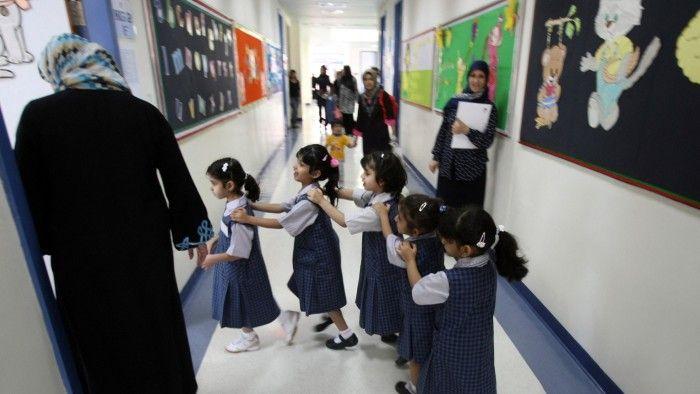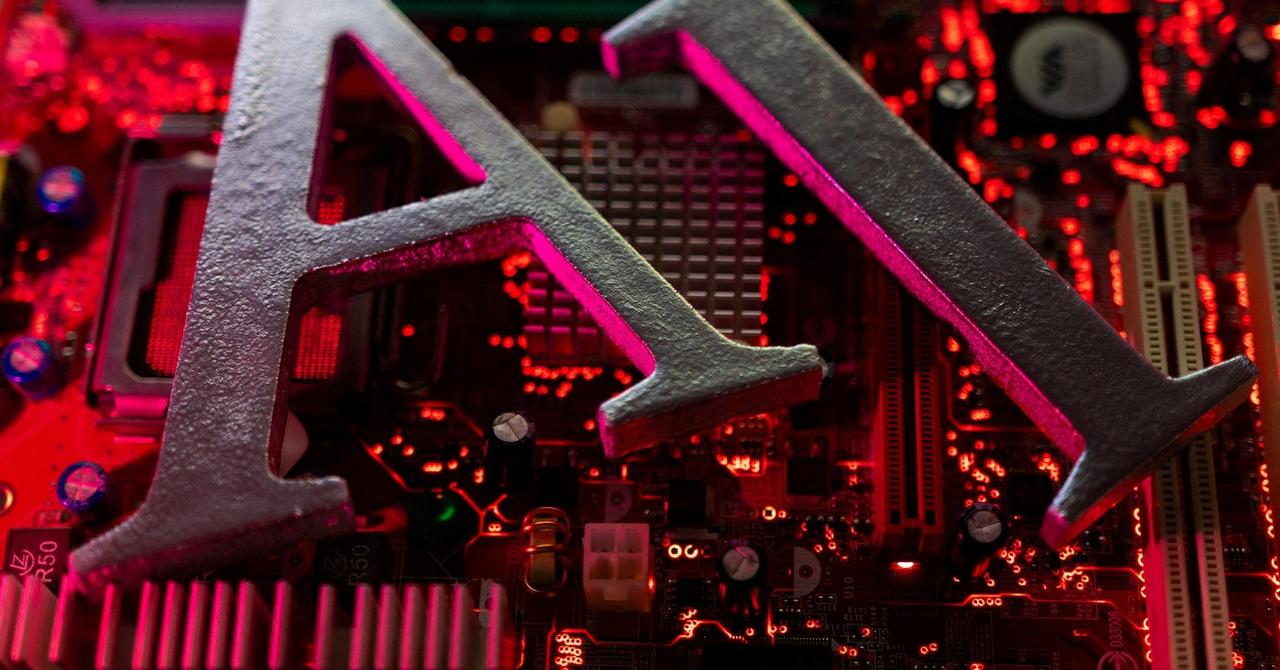Israel Launches Ambitious AI and Robotics Integration in Education from Kindergarten to High School
2 Sources
2 Sources
[1]
Israeli Ministry of Education unveils AI-focused 2025 curriculum
Israel's Education Ministry launches a nationwide AI integration plan, partnering with tech giants to train teachers and enhance classrooms with advanced tools. The Education Ministry launched a comprehensive national plan on Monday to integrate artificial intelligence into the education system. Spanning 2025, the initiative includes teacher training, the development of innovative curricula, and the implementation of specialized AI tools in classrooms. The program is designed for all students from 4th to 12th grade and is tailored to all sectors of Israeli society. As part of the initiative, the ministry has enlisted over 400 leading tech companies, including Google, Microsoft, Apple, and Nvidia, to help train 3,000 mentors who will assist schools in integrating AI technologies and adapting them to pedagogical needs. The program introduces new AI tools, including: "Q," a training bot for responsible AI usage developed specifically for the education system; a Google Gemini-based chat assistant adapted to Education Ministry requirements and protected from external influences; "Magic School," a platform for lesson planning and student assessment; and a customized Minecraft interface, designed for younger students. Throughout February, the Education Ministry will host special live broadcasts, competitions, and major events, culminating in a central gathering on February 27. Simultaneously, dozens of enrichment webinars will be held for teachers, with over 70,000 expected participants, covering various aspects of AI integration in education. Authorities' statements "Today, we are leading an unprecedented global initiative, connecting Israel's education system with top hi-tech companies to train teachers and students in artificial intelligence," Education Minister Yoav Kisch wrote. Kisch added that "we are positioning Israel at the forefront of AI-era education" and that "to equip the next generation with the skills to succeed in tomorrow's world is one of the most important missions before us." Education Ministry Director-General Meir Shimoni added, "This initiative goes beyond just integrating technology in classrooms," stating, "It is a new educational philosophy that combines artificial intelligence with human intelligence." Stay updated with the latest news! Subscribe to The Jerusalem Post Newsletter Subscribe Now Shimoni added, "Our main challenge is to harness technological power while preserving the human values in education," concluding that "Teachers will receive advanced tools that allow them to focus on their core roles -- teaching, mentoring, and providing personal guidance. AI will serve as a supportive tool, enabling precise adaptation to each student's needs." Merav Zarbiv, Director of the Innovation and Technology Division, stated that "we are turning vision into reality," as "we have built a comprehensive support and monitoring framework to ensure successful integration."
[2]
Education Ministry launches AI robotics program in kindergartens
Developed by the ministry's Early Childhood Education Division, the initiative aims to equip young pupils with technological skills traditionally introduced at later educational stages. The Education Ministry is rolling out what is said to be the first initiative of its kind to integrate robotics into kindergartens across Israel, Maariv revealed on Monday. The pilot phase will launch in approximately 500 kindergartens, marking a significant step in early childhood education. Developed by the ministry's Early Childhood Education Division, the initiative aims to equip young pupils with technological skills traditionally introduced at later educational stages. "We're not just teaching children to play with robots - we're preparing them for the world of tomorrow," Orna Paz, head of the Early Childhood Education Division, told Maariv. "When a four-year-old learns to program a small robot to follow a path they designed, they gain much more than technological skills - they develop logical thinking, problem-solving abilities, and teamwork." As part of the program, pupils will design and construct tracks for robots, solve puzzles in small groups, explore basic programming concepts through play, and create robotic theater performances. Special projects, such as The Journey from Home to Kindergarten, will use robots to navigate neighborhood maps, making the learning experience interactive and engaging. Later on Monday, Education Minister Yoav Kisch is expected to unveil the ministry's Year of Artificial Intelligence in Education initiative. The early childhood robotics program will serve as a cornerstone of a broader effort to integrate technology into schools. Laying the groundwork for an AI-driven future Dr. Meirav Turgeman, head of the Kindergarten Division at the ministry, emphasized the program's transformative nature. "This is not just another curriculum - it's an entirely new way of teaching young children. Robots serve as a tool that enables us to introduce complex concepts engagingly and playfully," she told Maariv. The ministry highlights that beyond introducing robotics, the program focuses on equipping pupils with foundational skills for future engagement with artificial intelligence. A key component is training kindergarten teachers to seamlessly integrate technology into daily learning experiences. "This is the first time the Education Ministry has developed a structured program based on the pedagogy of the 'kindergarten of the future,'" Turgeman said. "Previous robotics programs were designed by external organizations and focused primarily on basic technical skills, such as simple programming and problem-solving. This time, we are placing a strong emphasis on developing knowledge, values, and broader skills." She noted that the program extends beyond coding. "It's not just about programming robots, but also about fostering critical thinking, creativity, imagination, communication, and collaboration. Robotics is used as a tool to develop life skills in a rapidly evolving technological world while ensuring personal expression and interpersonal skills." The program also equips teachers with AI-based tools to create personalized learning activities tailored to pupils' needs. Yoav Kisch: 'Starting young to build the future' Education Minister Yoav Kisch highlighted the broader vision behind the initiative to Maariv. "This new kindergarten program is a prime example of the educational approach our ministry is leading in technology and innovation - starting from early childhood, in a way specifically designed for young pupils, using friendly robots that teach through play and experience." Stay updated with the latest news! Subscribe to The Jerusalem Post Newsletter Subscribe Now "The program naturally aligns with the Year of Artificial Intelligence in Education, which we are launching today. We recognize that the key to success lies in building a solid educational foundation from kindergarten onward. The pilot program in 500 kindergartens is just the beginning of a journey that will prepare Israeli pupils for the world of tomorrow." The initiative is tailored to early childhood education, with trained teachers facilitating learning experiences to ensure relevance and engagement. Educators undergo specialized training to lead the effective integration of technology in kindergartens. Revital Dovrah, director of Masa HaPele kindergarten in Rishon Lezion, which has already begun implementing the program, shared her experience. "Playing with robots in kindergarten encourages curiosity, creativity, and technological thinking while developing cooperation, problem-solving skills, and an exciting new way to explore the world." Young participants are already embracing the program with enthusiasm. Sharon, a pupil in the program, said, "We're learning how to move the robot using commands, and we even played bowling with it by knocking down cups." Eitan, another participant, added, "We learned to give the robot instructions, and then we teach it what to do based on the commands. The best part is when I succeed!"
Share
Share
Copy Link
Israel's Education Ministry unveils a comprehensive plan to integrate AI and robotics into the education system, spanning from kindergartens to high schools, partnering with tech giants and introducing innovative tools to prepare students for the future.

Israel's Ambitious AI Education Initiative
Israel's Education Ministry has launched a groundbreaking national plan to integrate artificial intelligence (AI) and robotics into its education system, spanning from kindergartens to high schools. This comprehensive initiative, set to unfold through 2025, aims to position Israel at the forefront of AI-era education and prepare students for the technological challenges of the future
1
.AI Integration in Schools
The program, designed for students from 4th to 12th grade across all sectors of Israeli society, includes several key components:
-
Teacher Training: The ministry has partnered with over 400 leading tech companies, including Google, Microsoft, Apple, and Nvidia, to train 3,000 mentors who will assist schools in integrating AI technologies
1
. -
Innovative AI Tools:
- "Q": A training bot for responsible AI usage
- Google Gemini-based chat assistant: Adapted to Education Ministry requirements
- "Magic School": A platform for lesson planning and student assessment
- Customized Minecraft interface: Designed for younger students
1
-
Enrichment Activities: Throughout February, the ministry will host live broadcasts, competitions, and webinars, with over 70,000 teachers expected to participate
1
.
Robotics in Kindergartens
In a pioneering move, the Education Ministry is also introducing robotics to kindergartens across Israel:
-
Pilot Program: Approximately 500 kindergartens will participate in the initial phase
2
. -
Skill Development: The program aims to develop logical thinking, problem-solving abilities, and teamwork in young children
2
. -
Interactive Learning: Activities include designing robot tracks, solving puzzles, exploring basic programming concepts, and creating robotic theater performances
2
.
Educational Philosophy and Goals
Education Minister Yoav Kisch emphasized the importance of this initiative, stating, "To equip the next generation with the skills to succeed in tomorrow's world is one of the most important missions before us"
1
. The program seeks to:- Combine AI with human intelligence in education
- Preserve human values while harnessing technological power
- Provide teachers with advanced tools to focus on core roles like mentoring and personalized guidance
1
Dr. Meirav Turgeman, head of the Kindergarten Division, highlighted that the program goes beyond coding, focusing on developing "critical thinking, creativity, imagination, communication, and collaboration"
2
.Related Stories
Implementation and Support
The Education Ministry has developed a comprehensive support and monitoring framework to ensure successful integration. Merav Zarbiv, Director of the Innovation and Technology Division, stated, "We are turning vision into reality"
1
.For kindergartens, educators undergo specialized training to effectively integrate technology into early childhood education. The program is designed to be engaging and relevant to young learners
2
.Early Feedback
Initial responses from participants have been positive. Revital Dovrah, director of a kindergarten implementing the program, noted that playing with robots encourages curiosity and creativity while developing cooperation and problem-solving skills
2
.As Israel embarks on this ambitious journey to revolutionize its education system through AI and robotics, it sets a precedent for other nations to follow, potentially reshaping the global landscape of early childhood and K-12 education in the AI era.
References
Summarized by
Navi
[1]
[2]
Related Stories
Recent Highlights
1
ByteDance's Seedance 2.0 AI video generator triggers copyright infringement battle with Hollywood
Policy and Regulation

2
Demis Hassabis predicts AGI in 5-8 years, sees new golden era transforming medicine and science
Technology

3
Nvidia and Meta forge massive chip deal as computing power demands reshape AI infrastructure
Technology








